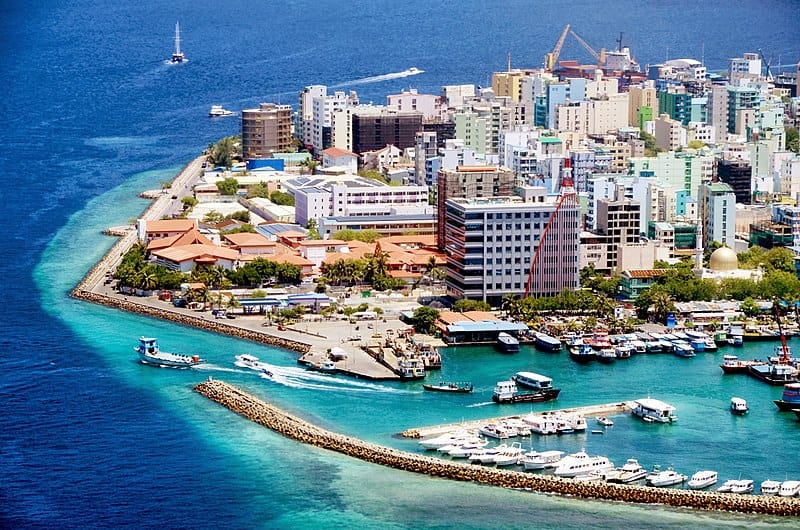Maldives Aims for Economic Revival with $9 Billion Blockchain Hub Investment

The Maldives, a picturesque Indian Ocean archipelago known for its turquoise waters and luxury resorts, is embarking on an ambitious economic transformation. A Dubai-based family office, MBS Global Investments, has unveiled plans to invest $8.8 billion over five years to develop a cutting-edge blockchain and digital assets financial hub in the capital, Malé.
This monumental project, which surpasses the nation’s annual GDP of approximately $7 billion, is seen as a critical step for the Maldives to diversify its economy and navigate a looming debt crisis. According to the Financial Times, Finance Minister Moosa Zameer described the initiative as a necessary leap to reduce the country’s reliance on tourism and fisheries, sectors that have long defined its economy.
The Maldives faces significant financial challenges, with substantial debt repayments due in the coming years. Zameer highlighted that external debt obligations, including $600-700 million this year and roughly $1 billion in 2026, pose the greatest hurdle. The blockchain hub, formalized through a joint venture agreement signed on Sunday, is positioned as a potential lifeline. MBS Global Investments, managing assets worth $14 billion for a prominent Qatari family, has already secured commitments exceeding $4 billion for the project. Chief Executive Nadeem Hussain emphasized the firm’s strategic alliances with other family offices and high-net-worth individuals to ensure robust funding through a mix of equity and debt.
Stay In The Loop and Never Miss Important Crypto News
Sign up and be the first to know when we publishA Vision for Economic Transformation
The Maldives International Financial Centre, spanning 830,000 square meters, is designed to accommodate 6,500 residents and create 16,000 jobs. The hub aims to establish the Maldives as a global leader in blockchain and digital assets, with projections to triple the nation’s GDP within four years and generate over $1 billion in revenue by the fifth year. This vision comes on the heels of a $760 million bailout from India to prevent a sovereign default, underscoring the urgency of economic diversification. Unlike traditional borrowing models, Zameer noted that the partnership with MBS represents a business-oriented approach, leveraging the Maldives’ strategic advantages, including political stability and proximity to major markets like India and the Gulf.
While the project holds transformative potential, challenges remain. The Maldives must compete with established financial hubs like Dubai and Mauritius, a task one senior Indian businessperson described as formidable. Additionally, Moody’s has flagged ongoing liquidity pressures due to the country’s external debt, including a $500 million sukuk due in 2026. Despite these hurdles, the Maldives is betting on innovation and strategic partnerships to redefine its economic future. The blockchain hub could position the archipelago as a forward-thinking player in the global financial landscape, provided it can navigate the complexities of execution and regional competition.

